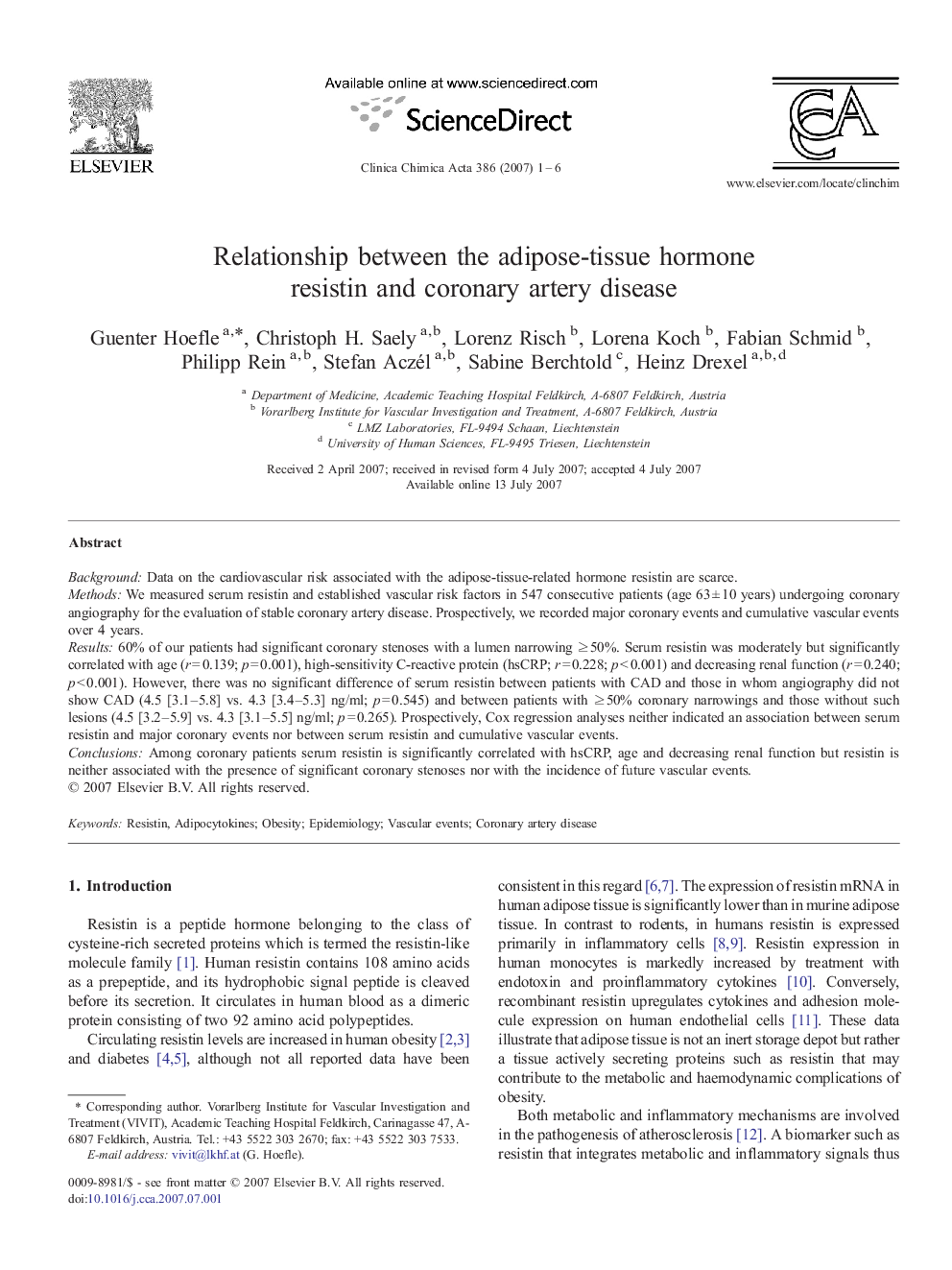| Article ID | Journal | Published Year | Pages | File Type |
|---|---|---|---|---|
| 1967517 | Clinica Chimica Acta | 2007 | 6 Pages |
BackgroundData on the cardiovascular risk associated with the adipose-tissue-related hormone resistin are scarce.MethodsWe measured serum resistin and established vascular risk factors in 547 consecutive patients (age 63 ± 10 years) undergoing coronary angiography for the evaluation of stable coronary artery disease. Prospectively, we recorded major coronary events and cumulative vascular events over 4 years.Results60% of our patients had significant coronary stenoses with a lumen narrowing ≥ 50%. Serum resistin was moderately but significantly correlated with age (r = 0.139; p = 0.001), high-sensitivity C-reactive protein (hsCRP; r = 0.228; p < 0.001) and decreasing renal function (r = 0.240; p < 0.001). However, there was no significant difference of serum resistin between patients with CAD and those in whom angiography did not show CAD (4.5 [3.1–5.8] vs. 4.3 [3.4–5.3] ng/ml; p = 0.545) and between patients with ≥ 50% coronary narrowings and those without such lesions (4.5 [3.2–5.9] vs. 4.3 [3.1–5.5] ng/ml; p = 0.265). Prospectively, Cox regression analyses neither indicated an association between serum resistin and major coronary events nor between serum resistin and cumulative vascular events.ConclusionsAmong coronary patients serum resistin is significantly correlated with hsCRP, age and decreasing renal function but resistin is neither associated with the presence of significant coronary stenoses nor with the incidence of future vascular events.
